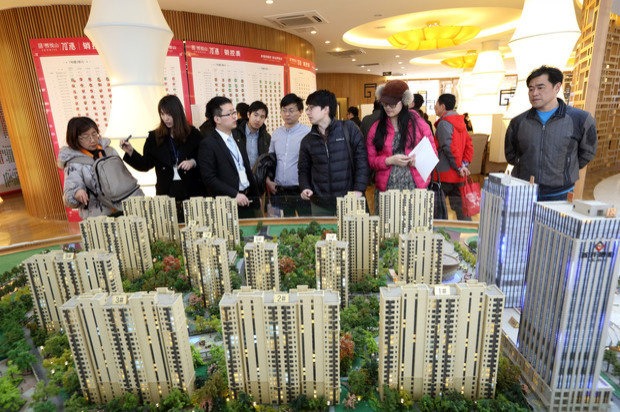China's Largest Cities Stop 'Fake Divorce' Home Buyers And Sellers From Exploiting Law To Avoid Taxes On Second Homes

China's government has just managed to put a damper on its red-hot real estate market, increase revenue and cut down on the country's suddenly rising divorce rate -- all with one brief announcement.
At least that's what Beijing, which announced a new housing policy on Saturday, is hoping. The government’s first effort, which came early last month, to take the air out of the nation's housing bubble backfired and sent central planners back to the proverbial drawing board for a quick fix.
Here's what happened. Real estate prices in China are far too high. The government wants to let the air out of the bubble before it pops and drags down the rest of the economy, potentially threatening social stability. One way of doing that is to raise taxes on real estate transactions. So on March 1, China's State Council in Beijing announced it would strictly enforce a 20 percent capital gains tax on sales of second homes and raised to 60 percent the tax on couples who purchased second homes. The goal was to tamp down surging house prices.
The new policy, however, offered a loophole: Divorced couples could avoid the new taxes. Naturally, an untold number of Chinese homeowners who wanted to sell their homes or wanted to buy a second home decided it was time to divorce -- temporarily -- to dodge the tax man. If each spouse in a family that owned two homes divorced, so the reasoning went, then each spouse would own one of the homes and could sell that home without facing the new punitive tax. Likewise, if each spouse in a family that already owned one home divorced, this would allow one of the spouses to buy another home without paying the 60 percent tax. And, voila, once the deal gets done -- with only a 1 percent or 2 percent tax -- the couple remarries.
"Profits from property sale have long been subject to the 20 percent individual income tax since 1993," said Gregory Tan with Morrison & Foerster LLP in the firm's China real estate update, "but few property owners have actually had to pay the tax."
On Saturday the government plugged the loophole, and it appears the rush to divorce is dropping, as are home prices. Beijing will have to wait to see how much more revenue comes from plugging the loophole.
The huge reaction to the March 1 announcement reflects the outsized importance of real estate in China, where there are limited ways to invest money for adequate returns. The government limits how much banks can lend, savings accounts have artificially low yields, and the stock market is difficult for most people to access, so multiple property purchases are a common way to invest.
Well-off families often acquire second homes for aging parents or they use money from renters for their retirement or education. Yet the government also cracks down on this practice in China's largest cities in an attempt to ward off speculators who are looking to flip homes and apartments for amounts that push up home prices. To curb speculators, banks will limit loans for residents who already own two residences and are attempting to buy more.
"China has a liquidity problem," Beijing University Professor Michael Pettis told the New York Times, stressing that it is awash in too much cash and credit. "It's not clear to me changing the tax structure or fiddling around the edges addresses the real problem."
© Copyright IBTimes 2025. All rights reserved.






















